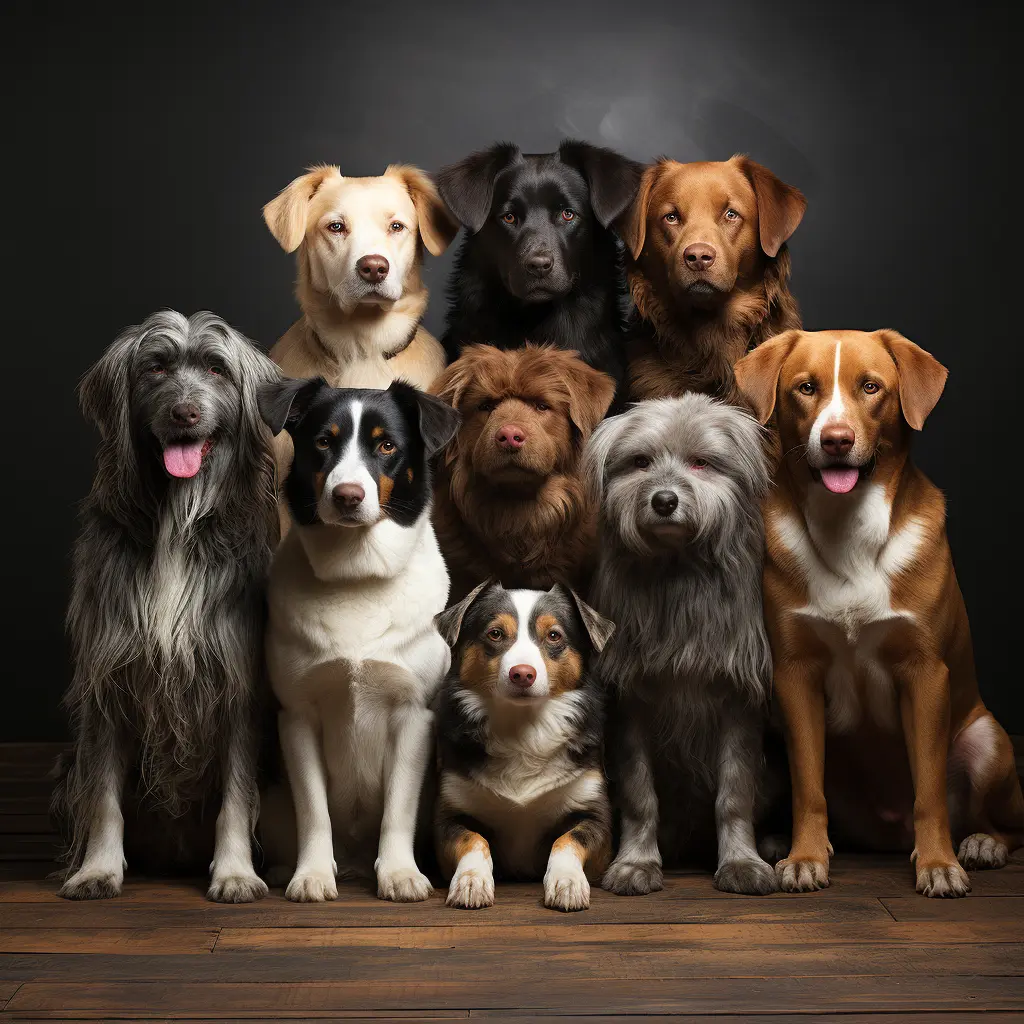There are many dog breeds, and the exact number can vary as new breeds are developed and recognized. The Fédération Cynologique Internationale (FCI), the international governing body for dog breeding, currently recognizes more than 360 different dog breeds. These breeds are divided into different groups according to certain characteristics and purposes.
It should be noted that there are also many dogs that do not belong to any particular breed and are referred to as mixed breeds or street dogs. The variety of dog breeds includes different sizes, colors, coats, temperaments and purposes, from companion dogs to working dogs to purebred dogs for specific sports or tasks.

Which dog breeds are suitable for families with children?
Many dog breeds that are suitable for families with children. However, it is important to know that a dog’s character depends not only on the breed, but also on the dog’s individual personality, upbringing and social conditioning. Nevertheless, here are some dog breeds that are often considered family-friendly:
- Golden Retrievers: Golden Retrievers are known for their friendliness, patience and love of children. They are often easy to train and have a high tolerance for hectic households.
- Labrador Retriever: Similar to the Golden Retriever, Labrador Retrievers are friendly, intelligent and good-natured. They are generally patient with children and easy to train.
- Beagle: Beagles are often cheerful and robust dogs. They have a lot of energy, are playful and get along well with children.
- Bulldogs: English bulldogs are calm, composed and can be a good choice for families. They are usually affectionate and have a gentle character.
- Collie: Collies are generally gentle, intelligent and easy to train. They adapt well to family life and often have a protective nature.
- Boxer: Boxers are energetic and playful dogs. They often have a strong bond with their family members and are generally affectionate with children.
- Cavalier King Charles Spaniel: These small dogs are affectionate and loving. They adapt well to family life and are often friendly with children.
It is important to consider the individual characteristics of each dog, regardless of breed. In addition, good socialization and training is essential to ensure that the dog is good with children. If possible, you should also get to know the dog’s character before adopting or buying it to make sure it will fit in well with your family.
Which dog breeds are easy to train?
The trainability of a dog depends not only on the breed, but also on the individual characteristics, the quality of training and the willingness of the dog owner to invest time and effort in training. However, there are dog breeds that are often considered easy to train due to their intelligence, learning ability and willingness to cooperate. Here are some of these breeds:
- Border Collie: This breed is considered one of the most intelligent dog breeds. Border Collies are eager to learn and willing to work, making them excellent students in dog training.
- German Shepherd: Shepherds are not only intelligent, but also loyal and versatile. They are often easy to train and can be used successfully in a variety of areas.
- Poodles: Poodles are not only popular because of their looks, but also because of their intelligence. They are generally easy to train and versatile in various disciplines such as obedience and agility.
- Labrador Retriever: Labradors are not only friendly and good-natured, but also intelligent and eager to learn. They are often easy to train and can be successful in a variety of roles.
- Dobermann: Dobermans are intelligent and obedient. With proper leadership and consistent training, they can be well behaved family dogs.
- Shetland Sheepdog: Shelties are intelligent and respond well to training. They are generally gentle and adapt well to different living conditions.
- Australian Shepherd: These dogs are intelligent, energetic and eager to learn. They are often successful in various activities such as dog sports and obedience.
It is important to note that each dog, regardless of breed, is individual. Crucial to success is the willingness of the dog owner to invest time and effort in training. Consistency, positive reinforcement and patience are key components of successful dog training, regardless of breed.
New dog breed descriptions in a quick overview

